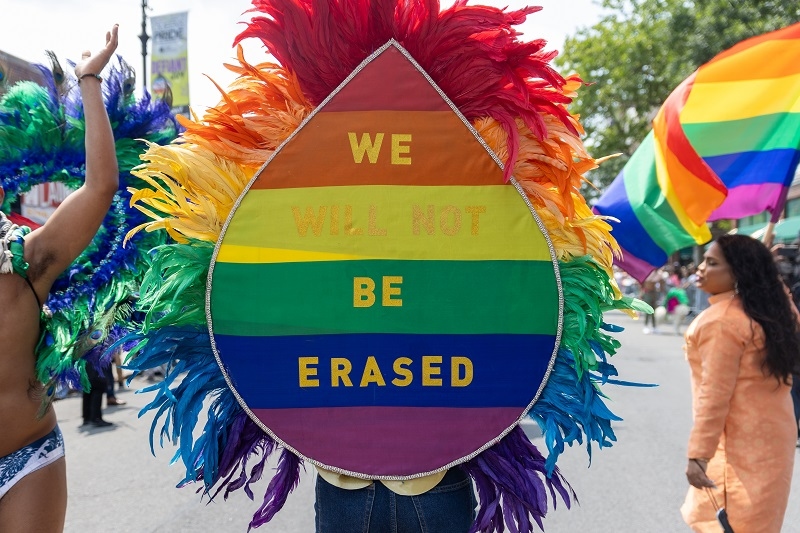Gay Relationship Advice: How to Boost Your Love Life

Gay relationships, while sharing many similarities with heterosexual relationships, navigate a unique path filled with both distinct joys and challenges. The journey to build strong, lasting male-to-male relationships is often marked by a deep sense of connection and understanding, stemming from shared experiences and perspectives.
However, these relationships also face specific obstacles, such as societal stigma, internalized homophobia, and a lack of mainstream guidance. This underscores the need for specialized advice to help gay men in understanding and navigating the complexities of their relationships.
Foundations of a Healthy Gay Relationship

Trust, Respect, Commitment, Communication, and Compromise
The bedrock of any robust gay relationship rests on five key pillars: trust, respect, commitment, communication, and compromise. Each of these elements plays a crucial role in fostering a healthy, thriving partnership.
- Trust: Essential in any relationship, trust in a gay relationship is built through honesty, integrity, and loyalty. It's about creating a safe space where vulnerability is welcomed and cherished.
- Respect: This involves honoring each other's feelings, opinions, and boundaries. Respect is about acknowledging your partner as an equal and valuing their individuality.
- Commitment: A strong relationship requires dedicated investment in terms of time, attention, and energy. It's about being there for each other and nurturing mutual growth.
- Communication: Clear, honest, and open communication is vital. It involves active listening and empathetic understanding, which are particularly crucial in gay relationships where partners may have faced communication barriers in the past.
- Compromise: Understanding and accommodating each other's differences is key. It's about finding middle ground where both partners feel heard and valued.
Lastly, for those dealing with gender dysphoria, these pillars become even more vital, ensuring a supportive and understanding environment within the relationship.
Strategies for a Fulfilling Gay Relationship
Building a Strong Foundation
- Self-Awareness and Self-Love: Knowing and accepting oneself is the first step towards a fulfilling relationship. It's about understanding your own needs, desires, and values.
- Overcoming Internalized Homophobia: Many gay men grapple with internalized negative beliefs about their sexuality. Therapy and support from the LGBTQ+ community can be instrumental in overcoming these barriers.
- Open and Honest Communication: This involves sharing thoughts and feelings openly and respectfully, fostering deeper mutual understanding.
- Quality Time: Prioritizing the relationship by spending meaningful time together strengthens the bond.
- Consistency and Transparency: Being reliable and transparent in actions and words builds trust.
- Forgiveness and Resilience: Navigating through challenges together, forgiving, and learning from mistakes strengthens a relationship.
- Supporting Each Others Goals: Encouraging and celebrating each other's aspirations and successes enhances mutual respect and love.
You may also like: Relationship Issues For Gay Couples: How to Overcome Them?
Physical and Emotional Intimacy
Intimacy is a critical component of a satisfying and lasting gay relationship. It's not just about physical closeness but also about emotional depth. Sharing feelings, dreams, and fears with your partner, and creating a space where both can be vulnerable, is as important as physical expressions of love. This balance of physical and emotional intimacy is what makes a relationship truly enriching and enduring.
Embracing Diversity and Individuality
In the vibrant tapestry of the LGBTQ+ community, each relationship is a unique blend of personalities, experiences, and backgrounds. Celebrating this diversity is crucial in acknowledging and respecting the individuality of each partnership. Gay relationships, like all relationships, come in various forms and dynamics, each with its own set of joys and challenges. Understanding and navigating these diverse relationships can often be enhanced with the guidance of a skilled gay therapist, who specializes in addressing these unique dynamics.
Navigating these complexities requires an understanding that no two relationships are the same and that what works for one couple may not work for another. Embracing this diversity means recognizing the multitude of ways love and commitment can be expressed and experienced within the community.
Building Supportive Networks
The support of friends and family plays a pivotal role in the health and longevity of a gay relationship. A strong support network can provide emotional backing, advice, and a sense of belonging. However, not all gay couples have the privilege of supportive families or communities.
In such cases, building a chosen family of friends and allies who respect and support the relationship becomes even more critical. Dealing with unsupportive or homophobic individuals is a harsh reality for many in the LGBTQ+ community. Strategies to handle such situations include setting clear boundaries, seeking support from allies, and, if necessary, limiting or ceasing contact with those who refuse to offer respect and acceptance.
Prioritizing Sexual Health
Sexual health is a fundamental aspect of any romantic relationship, and in gay relationships, it takes on particular importance due to unique health considerations. Open and honest communication about sexual history, preferences, and health is essential. This includes discussions about regular testing for sexually transmitted infections and safe sex practices. Prioritizing sexual health not only ensures the physical well-being of both partners but also builds trust and intimacy in the relationship.
Also read: Gay Men's Health: Key Concerns, Solutions & Well-being Tips
Conclusion
Building and maintaining a healthy gay relationship is a journey that encompasses understanding, respect, and love. It involves embracing the diversity and individuality of each partnership, building supportive networks, and prioritizing sexual health and open communication. Each relationship within the LGBTQ+ community has its unique narrative, and recognizing this individuality is key to fostering strong, lasting bonds.
For those facing challenges or seeking to deepen their relationship, therapy and support groups can offer valuable guidance and support. Remember, the strength of a relationship lies not just in the good times but in the ability to navigate the complexities and challenges together, growing stronger and more connected with each step.
This content was created by AI


























